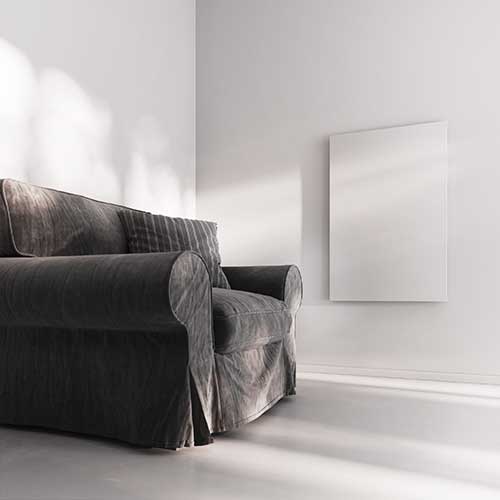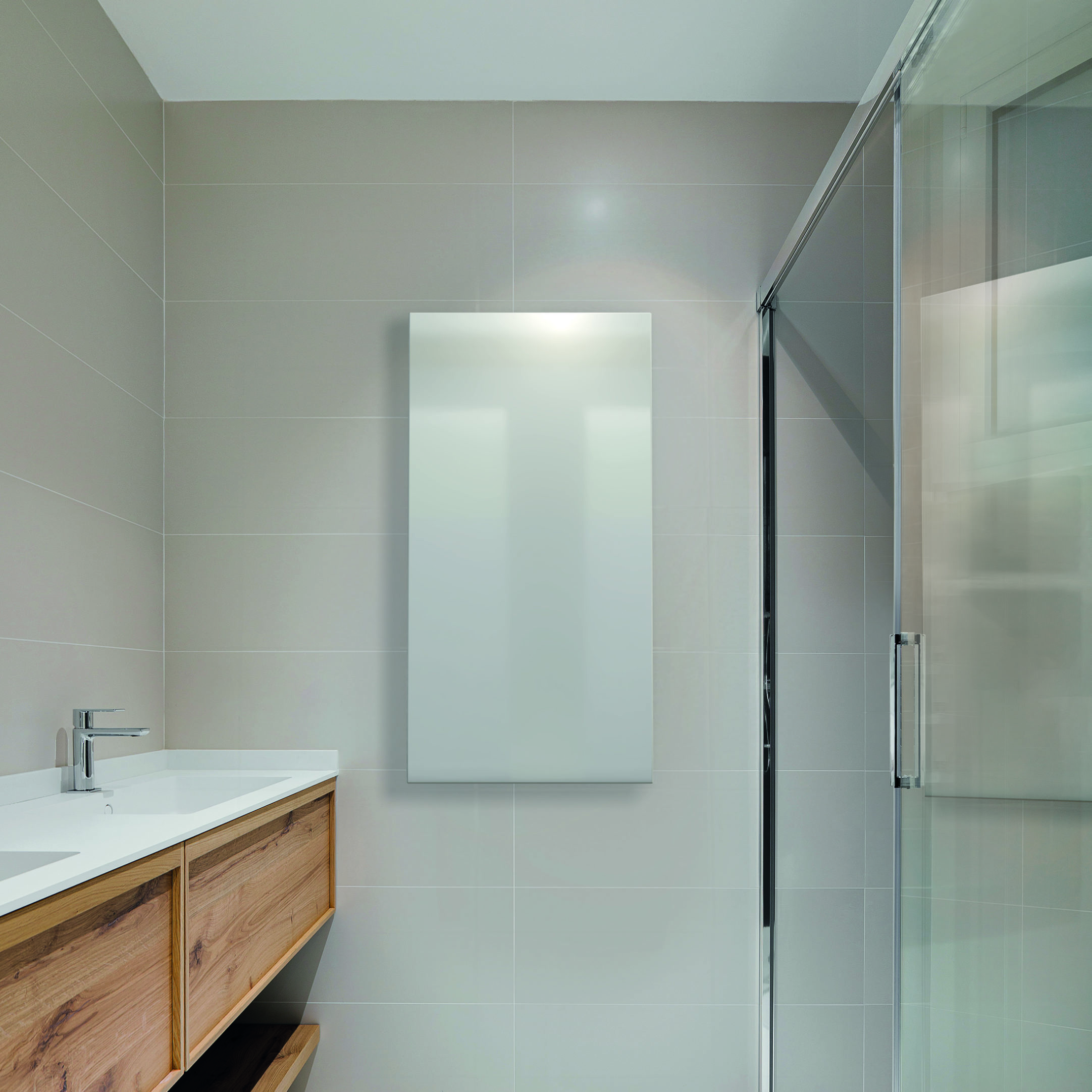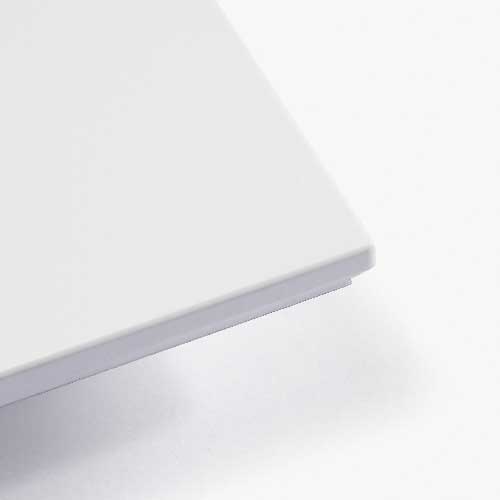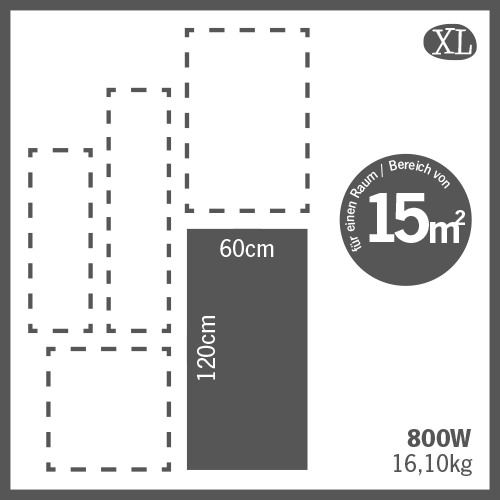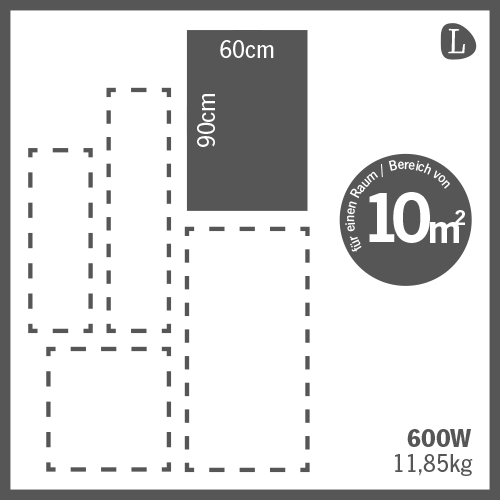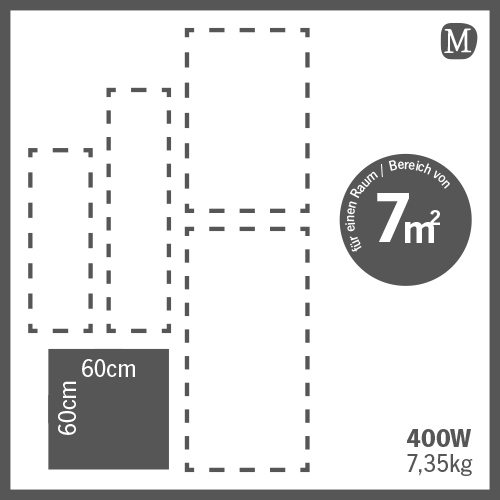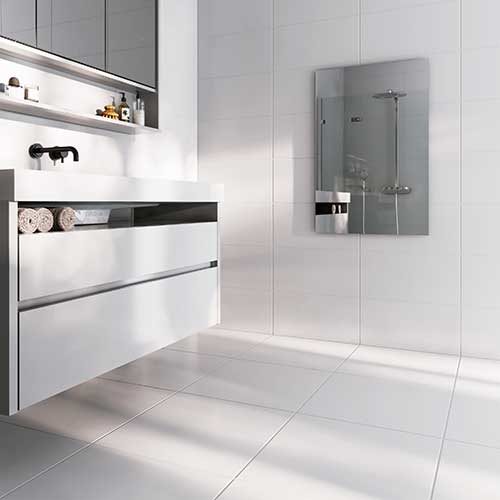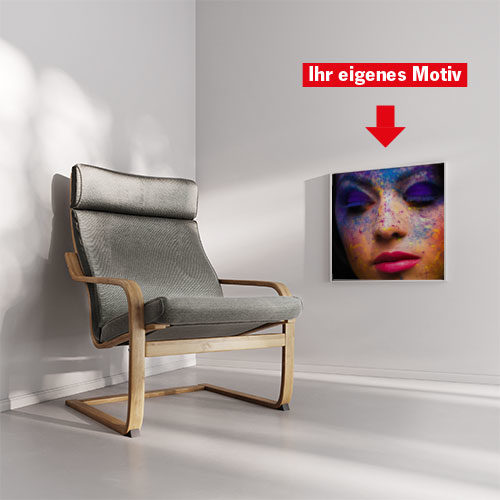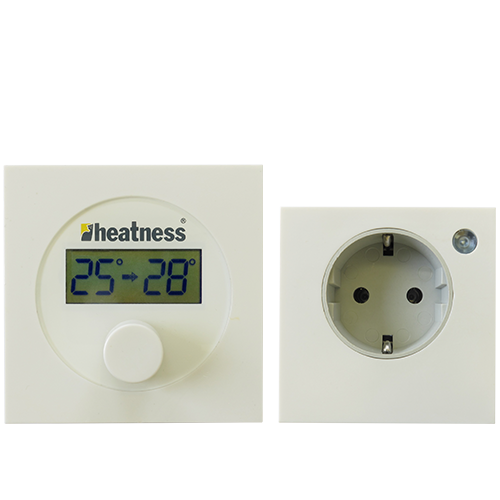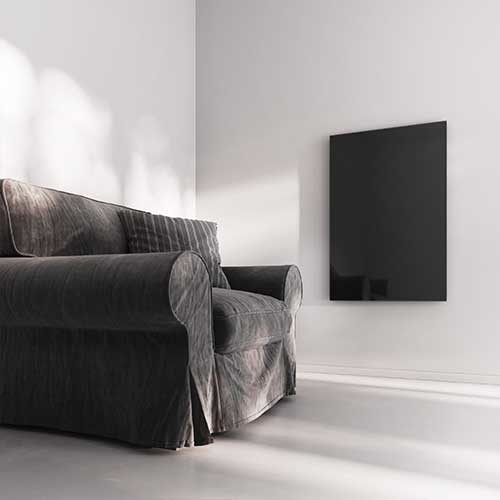- matt ceramic surface for highest efficiency
- elegant and modern design as an eye-catcher
- ideal as additional or as stand-alone heating system
Infrared heater ceramic
10.235,00 R – 17.825,00 R incl. VAT
Description
Our ceramic infrared heaters are the most efficient of all our infrared heaters. Their special ceramic surface ensures the highest possible efficiency. This means that the heat from the heater consists almost exclusively of efficient radiant heat instead of inefficient convection heat. At the same time, they impress with their extremely elegant appearance.
Technical data
 |
 |
 |
|
|---|---|---|---|
| Size | 120 x 60 x 2,5 cm | 90 x 60 x 2,5 cm | 60 x 60 x 2,5 cm |
| Power | 800 Watt | 600 Watt | 400 Watt |
| Weight | 16,1 kg | 11,85 kg | 7,95 kg |
| Position | Wall | Wall | Wall |
| Series | Ceramic | Ceramic | Ceramic |
| Protection class | IP65 | IP65 | IP65 |
Ceramic infrared heater compared to glass and metal
Infrared heaters are available in different materials, all of which have their advantages and disadvantages. While glass infrared heaters, for example, allow more freedom in terms of design – they can be realised as black or white glass heaters or as mirror heaters, for example – ceramic heaters are the most effective in terms of efficiency.
Everything emits heat radiation, the only question is how much? This value is expressed by the emissivity. This is particularly high for ceramic, which is why it is often used for infrared heating. While the thermal conductivity is a matter of the material (i.e. it varies in principle depending on whether it is a glass, metal or ceramic heater), a good heating element compensates for a lot.
In this respect, ceramic infrared heating panels definitely come out on top. They are the masters when it comes to effectively converting infrared radiation into heating warmth and bringing the room and its objects to a comfortable temperature. If the main focus is on efficiency and less on the design aspect, it is best to go for ceramic infrared heating.
Possible applications – heating with infrared and ceramics
The infrared heaters with ceramic surface from heatness are perfect for every household. They can be mounted on the wall in portrait or landscape format and provide a modern look due to their frameless design. In addition, the ceramic surface is very insensitive to any kind of dirt.
Supplementary heating
In general, there are several possible uses for infrared heating. For example, it can simply be used as a supplementary heater, like a fireplace or wood-burning stove. This is an easy-to-install and flexible way to give the central heating system a little help. Above all, it can be used to add an extra dose of comfort to rooms that are intended for cosy lounging, thanks to the pleasant radiant heat.
Sole heating
If you don’t just want to support the central heating system, but want to heat the entire room with infrared heating, this is of course also possible. With the good efficiency of ceramic heating, there is no need to fear horrendous electricity bills. You can therefore enjoy the cosy infrared warmth in the whole house or flat.
Infrared ceramic heating in the bathroom
A particularly popular area of application for infrared heating is the bathroom. Where people shower, bathe and freshen up, they usually need more heat, which infrared heating, especially ceramic heating, can easily provide. The energy that is consumed, the heat that is generated, is guaranteed to reach the bathroom and you.
Size chart and required wattage
The following table will help you choose the right heater. The heatable area is given for normally insulated rooms with a standard height of 2.5 metres. For better or less insulated rooms, the heatable room size may vary upwards or downwards.
If in doubt, we generally recommend going for the larger heater, as this will allow the desired temperature to be reached more quickly and increase comfort. A panel that is too small can only be compensated for with an additional one.
We would also be happy to calculate your individual heating requirements on request and provide you with a non-binding offer!
| Heater size | Heatable room size* | Dimensions | Electrical power |
|---|---|---|---|
 |
15 m² | 60 x 120 cm | 800 Watt |
 |
10 m² | 60 x 90 cm | 600 Watt |
 |
7 m² | 60 x 60 cm | 400 Watt |
*These details are based on a well-insulated room with a room height of 2.5 m
Video about mounting on the wall
Practically anyone can install our infrared heaters made of ceramic material. To do this, you first have to choose a suitable place, bearing in mind that an infrared heater cannot heat around the corner. This means that a spot on the wall should be chosen that looks straight ahead as far as possible into the room.
Safety
Electricity is a sensitive matter. If you don’t pay close attention, or if your electronic devices are not sufficiently protected, it can be very dangerous. Our infrared panels are designed according to and rigorously comply with the applicable standards and limits. The radiation experts at Seibersdorf Laboratories are also convinced of this.

Gutachten Seibersdorf Laboratories
What to look out for in terms of safety:
A radiator, no matter what type, should not be covered if possible, because otherwise the valuable heating energy cannot be distributed in the room in such a way that it also becomes properly warm. This is also important for safety reasons.
However, if our infrared panels are unintentionally covered, they are equipped with a temperature sensor that prevents overheating and switches it off automatically. In addition, a sticker on our products intended for public spaces indicates that they should not be covered.
For use in damp rooms, all our infrared heaters are splash-proof and meet all the requirements of protection class IP65. In the case of direct wiring, which should, however, be carried out by a specialist, higher protection classes are also possible, as the cables and connections are not exposed and are therefore not accessible to water.

